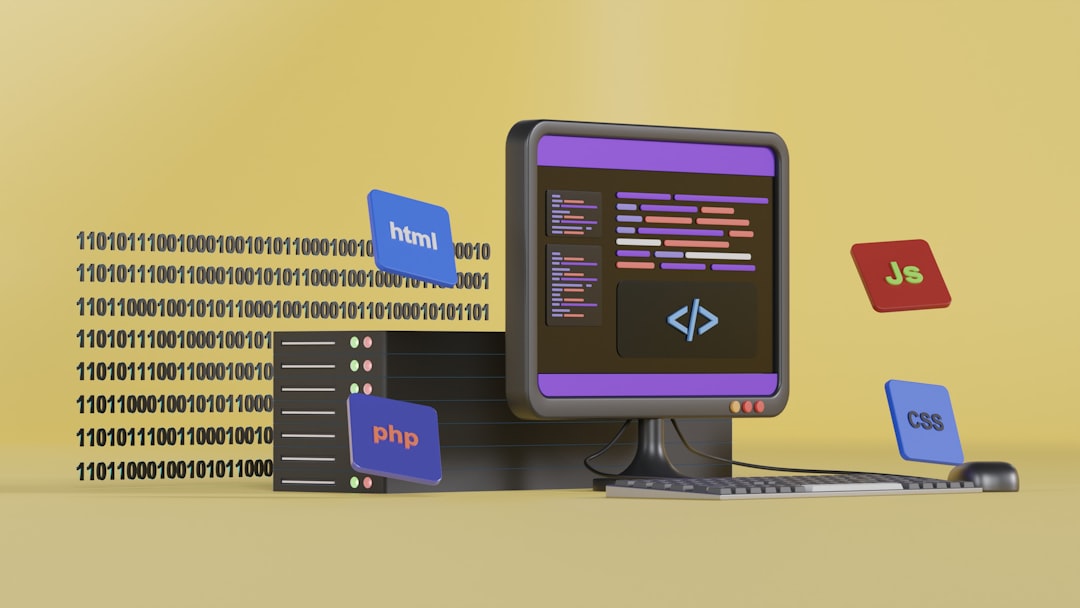In today’s digital-first educational landscape, more and more teachers are taking control of their content by building online course websites. Whether you’re creating supplementary lessons for your classroom or launching a fully remote learning platform, having the right website builder can make the difference between a simple landing page and an engaging, interactive learning environment.
TLDR: Best Website Builders for Teachers Creating Online Course Websites
Teachers looking to create online course websites have a range of powerful, user-friendly website builders at their disposal. Platforms like Teachable, Thinkific, Wix, WordPress, and LearnWorlds stand out for their educational features. Choosing the right one depends on your teaching goals, tech experience, and budget. This article explores each platform’s strengths, weaknesses, and ideal use cases to help you make an informed decision.
Why Teachers Need Custom-built Online Course Websites
As education evolves, the need for flexible and accessible learning environments grows. A customized online course platform allows teachers to:
- Set their own curriculum pace and style
- Provide differentiated instruction
- Facilitate learning anytime, anywhere
- Create additional revenue through paid courses
But building an education-focused website doesn’t mean becoming a tech wizard. Modern website builders eliminate the complexity, freeing teachers to focus on what they do best: teaching.
Top Website Builders for Teachers
Let’s dive into the top contenders that empower educators to build beautiful, effective online course websites.
1. Teachable
Best for: Monetizing and scaling educational content
Teachable is a well-known platform designed specifically for creators looking to sell online courses and coaching services. With its intuitive interface, educators can easily upload video lectures, host quizzes, track student progress, and process payments—all without writing a single line of code.
Key Features:
- Drag-and-drop course builder
- Built-in payment processing
- Email marketing integrations
- Sales analytics and student reporting
- Custom domains
Pros: Easy to use, strong monetization features, handles backend services.
Cons: Lower-tier plans charge transaction fees; limited design customization compared to traditional site builders.

2. Thinkific
Best for: A balance between customization and simplicity
Thinkific is a popular alternative to Teachable that gives you more creative control. It offers a robust free tier, which is ideal for teachers starting with small or experimental courses. Thinkific allows multiple content types per lesson, such as PDFs, videos, and community discussions.
Key Features:
- No transaction fees on any plan
- Course compliance features
- Multiple instructor support
- Flexible pricing options (subscriptions, one-time fees, memberships)
- Responsive design templates
Pros: Affordable, excellent student experience tools, good support for course prerequisites.
Cons: Design customization isn’t as advanced as on WordPress or Wix.
3. Wix
Best for: Visual design control and multipurpose websites
Wix isn’t built specifically for online courses, but it’s incredibly flexible. Teachers who want a website that combines blogging, portfolios, event scheduling, and selling course materials will love the drag-and-drop editor and gorgeous templates. With the Wix eLearning add-ons and integrations like Wix Video or Wix Bookings, you can easily pull together a functional teaching platform.
Key Features:
- Highly customizable templates
- Drag-and-drop interface
- App marketplace for added functionality
- Built-in SEO tools
- Subscription and payment features
Pros: Total creative control; lots of non-course content types supported.
Cons: Course delivery features aren’t native; can require extra configuration for education-specific use cases.

4. WordPress with LearnPress or LifterLMS
Best for: Complete ownership and flexibility
If you’re comfortable with a slightly steeper learning curve, WordPress offers unmatched control. With plugins like LearnPress, LifterLMS, or Tutor LMS, you can transform a standard website into a full-fledged learning management system (LMS).
Key Features:
- Custom themes made specifically for educators
- Rich plugin ecosystem
- One-time or recurring payment support
- Built-in quizzing, certifications, and drip content
- Self-hosted or managed WordPress options
Pros: Extreme flexibility, own your platform and data, freedom to customize.
Cons: Requires more setup and maintenance; must manage plugins and updates.
5. LearnWorlds
Best for: Interactive content and learning analytics
LearnWorlds shines for its advanced course features like note-taking, transcripts, and downloadable files embedded directly into video content. It’s ideal for educators who want to elevate their online teaching with dynamic visual learning experiences.
Key Features:
- Interactive video elements (buttons, quizzes, etc.)
- Powerful analytics on student behavior and progress
- School-specific templates
- Integrated community tools
- Custom mobile app options
Pros: Fantastic learner experience and engagement features.
Cons: Slightly higher pricing, steeper learning curve for beginners.
How to Choose the Right Platform for Your Needs
Selecting the best website builder for your teaching goals involves answering a few key questions:
- What kind of content will you be delivering? (e.g., videos, PDFs, quizzes)
- Do you want to monetize your course?
- How comfortable are you with technology?
- Do you want ready-made templates or full design flexibility?
- Will you need marketing and payment processing tools?
Your answers will inform whether you gravitate toward beginner-friendly platforms like Thinkific or Teachable, or opt for full control through WordPress or Wix.
Final Thoughts: Empowering Teachers Through Technology
The rise of online learning is more than just a trend—it’s a transformation. Teachers are no longer limited by the four walls of their classrooms. With the right website builder, you can provide students with engaging content, differentiate learning experiences, and even generate a new income stream.
Whether you’re rolling out your first mini course or designing a full-scale education portal, today’s digital tools make it easier than ever to bring your teaching online.

As a teacher, your wisdom deserves a broader audience. The right website builder ensures your message is not only heard—but seen, experienced, and remembered.
